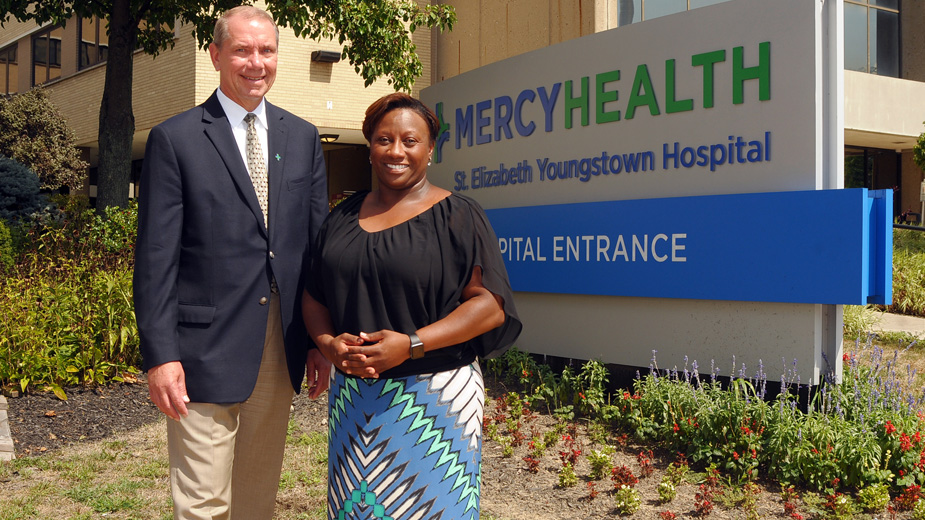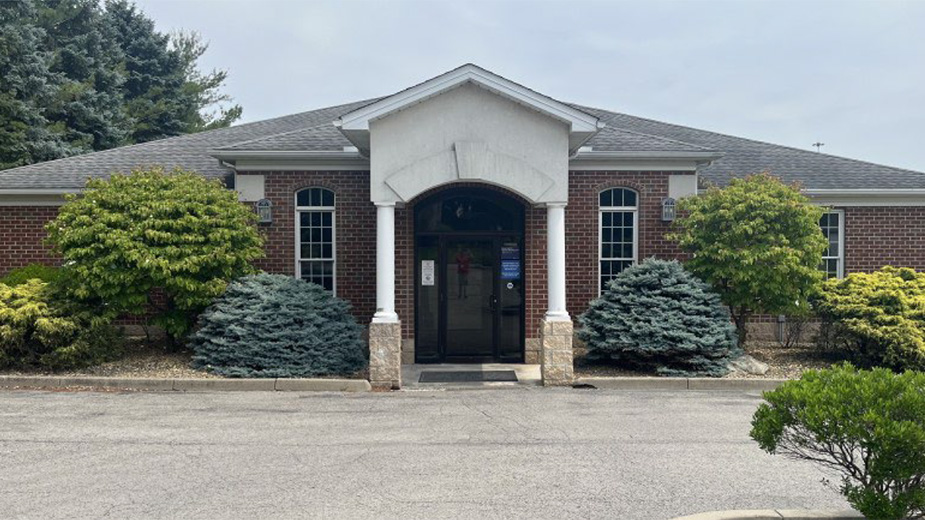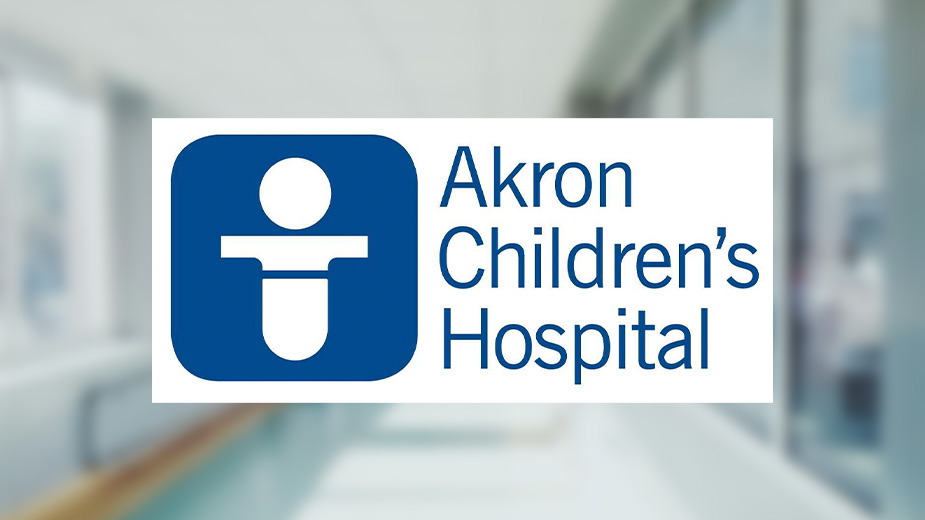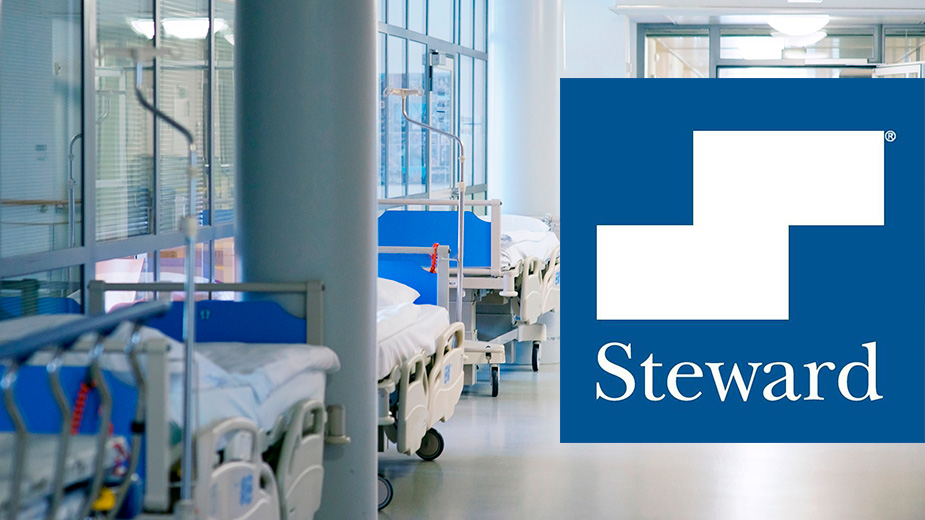Future Began Years Ago at Mercy Health
YOUNGSTOWN, Ohio – It was simply happenstance that Mercy Health-Youngstown made three major announcements – and had the seal broken on the possibility of a fourth – in the span of 10 days in late August, says its president and CEO, Donald Kline.
On Aug. 20, it was announced that the health-care system’s acquisition of Prima Healthcare was official, adding Mercy Health offices in Boardman, Columbiana and Salem. A week later, Salem Regional Medical Center announced it has joined Mercy Health Select, the system’s clinically integrated network, allowing the two health systems to share procedures, best practices and data.
Then, on Aug. 28, news broke that Mercy is talking to the Cafaro Co. about the possibility of adding a medical campus at Enterprise Park under development near the Eastwood Mall Complex. Mercy is “very interested in the site,” Kline says, “but it’s still up in the air.”
Two days later, it was announced Mercy Health would expand its partnership with Youngstown State University to bring a clinic to the corner of Wick and Lincoln avenues.
Also in the mix, just days before Prima became part of Mercy, was the announcement of the closing Sept. 20 of Steward Health Care-owned Northside Regional Medical Center.
“We have been preparing,” Kline said Aug. 15. “We have been on-the-ready in case this day came.”
Beyond the region, it was announced earlier this year that Mercy Health would merge with Baltimore-based Bons Secours Health System, a move described as a “combination of two equal ministries” that’s expected to be completed in the coming weeks.
The combined health system, to be called Bons Secours Mercy Health, will operate 43 hospitals across seven states and generate $8 billion in operating revenue, making it the fifth-largest Catholic health system in the nation.
For now, Mercy Health and Bon Secours will retain their brands and existing signage, according to people familiar with the merger plans, and the CEO of the new company will be John Starcher, who has led Mercy Health since 2016.
A decision still must be made as to where the system will house its headquarters or whether it will operate regional hubs.
“None of these were snap decisions. Each is very important to us and they were all well thought out,” he says. “They just happened to all come out in August.”
All of the Mercy expansion projects, Kline says, were months or years in the making. The first talks of acquiring Prima, he recalls, took place more than a decade ago.
To arrange the clinically integrated network agreement, he first met with Salem Regional President Dr. Anita Hackstedde last autumn.
But the moves do position Mercy Health-Youngstown to expand its services – and in the case of the Salem Regional partnership, its market range and knowledge base – and better carry out its mission, say Kline and Nikki Carter, vice president of strategy and business development.
“It’s really about figuring out what we do well, what the community needs and how we can partner to make sure the community is getting everything they need,” Carter says. “For the Prima acquisition, the industry is evolving to the point where partnering with physicians is very important. It’s not just about hospitals being hospitals and doctors coming in.”
The way Kline sees it, there are three ways to deliver on meeting community needs: build, acquire and align.
He points to the construction of St. Elizabeth Boardman Hospital, which opened in 2007, and more recently the Howland Medical Center, both of which “are just the right size for their services and have been well received,” he says.
The acquisition of Prima, for example, allowed Mercy to spread into Columbiana County through doctor’s offices without overloading the area on services.
“Columbiana County already has a hospital [Salem Regional Medical Center] and through alignment, we can share best practices. It doesn’t add resources to a market that already has the right amount,” Kline says.
Through Mercy’s clinically integrated network, which includes 2,700 care providers, 24 hospitals, 114 skilled nursing centers and 35 home-health agencies, Salem Regional and Mercy Health will share information ranging from best practices to internal processes to data.
“The network will jointly negotiate and manage payer contracts, which means that each independent provider benefits from greater access to larger networks and value-based contracts,” says Salem Regional’s CEO, Dr. Anita Hackstedde.
“Health care is transforming at a rapid pace and hospitals must ensure that we are delivering the highest quality of care while reducing health-care costs and improving the health of our communities,” she adds.
Mercy’s Carter views such collaborations in terms of quality outcomes.
“Information is power,” she says. “As we’re sharing information on quality and how we treat patients, everyone does better. Salem does better by seeing how we manage and handle quality and we’ll learn from them. Then, for everyone in the community, the care is better.”
Achieving that goal, the executives say, doesn’t just come through capital improvements either.
While Kline notes the addition of a hybrid operating room in 2016 and the expansion of the labor and delivery department at St. Joseph Warren Hospital, there’s been just as much investment into the system’s staff.
Mercy Health-Youngstown recently crossed the 5,000-employee threshold, he says, and employs 200 physicians.
“We’ve been able to recruit great specialists. Things like transcatheter aortic valve replacements, specially trained neurosurgeons and advanced heart failure specialists are all part of our commitment,” he says. “Right now, we have a great group and they’re not just employed [by Mercy Health]. We have over 200 employed, but our medical staff is well over 600.”
Looking down the road, both Carter and Kline see the system’s trio of hospitals playing a different role than they do now.
“Everyone looks at Mercy as St. E’s or St. Joe’s or [St. Elizabeth Boardman Hospital], just the hospital settings. Those are acute care, whether for something episodic, for the [emergency department] or surgery,” Carter says. “If health care is successful, the theory is people should come to the hospital less because they’re healthier. If we do things well, people will go to doctor’s offices and not come to the hospital.”
Carter and Kline say Mercy Health-Youngstown’s focus is on developing the continuum of care. That may start with a second St. Joseph’s campus at the Cafaro Co.’s Enterprise Park.
Kline notes that no decision has been made yet and if it does come to fruition, it doesn’t mean the closing of the current campus on Eastland Avenue in Warren.
“St. Joe’s campus is landlocked and it’s getting older,” he says. “Part of what we have to do … is [examine] what services will remain and, if you invest in new services, [is it things like] new departments, in-patient beds, new operating rooms. And are those better at the existing campus or a new site?”
As the population of the Mahoning Valley continues to get older, that opens a new set of challenges for Mercy Health. According to the Ohio Office of Research’s 2020 population projection, published in April, the total population of Mahoning, Trumbull and Columbiana counties is expected to decrease from 2015.
In all three counties, five-year age ranges 60 and up are forecast to grow, while younger populations are expected to shrink.
Complicating matters, the area is lagging behind national marks for health, Carter says. According to the annual County Health Rankings & Roadmaps report from the Robert Wood Johnson Foundation, Mahoning, Trumbull and Columbiana counties ranked 68th, 63rd and 64th, respectively, among Ohio’s 88 counties for health outcomes.
“Our population is declining. Our population is not getting healthier and isn’t as healthy as the rest of the nation is. Our population does not earn as much,” she says.
“Those that are 65 and older are in the only demographic that’s growing. That population uses health services way more, so we need to make sure we’re providing services. … From birth to death, we need to provide the services the community needs or we need to have a strong relationship with an organization that can.”
The focus, then, will be the coordination of care, she says. It isn’t enough to hope residents make their annual checkups with their doctor.
“Ambulatory care – outpatient services – is where we’re going to invest a lot of our time, energy and strategy,” Carter says. “It’s about knowing they’re also diabetic and coordinating care across our continuum with specialists, home care or rehab. We have to meet patients where they are.”
Pictured: Donald Kline and Nikki Carter say Mercy Health is focused on developing the system’s continuum of care.
Copyright 2024 The Business Journal, Youngstown, Ohio.



